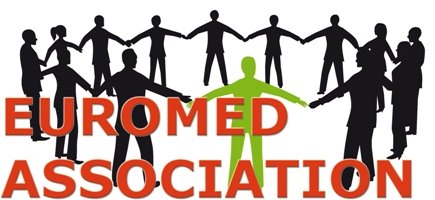Freedom of Association Under Control
The governments of Euro-Mediterranean countries have opted for a very strict legal framework on freedom of association. The exercise of freedom of association has become extremely risky, if not impossible, whether because of the law itself or because of its interpretation by the authorities. This is the main finding of the second Freedom of Association report published by the Euro-Mediterranean Human Rights Network (EMMHRN).
In the report, the EMHRN welcomes the positive achievements in certain countries of the region, but it remains concerned by the numerous violations of freedom of association it observed in numerous East and South Mediterranean countries throughout the year. In Jordan, a new law allowing an even larger monitoring power on associations' activities was adopted; in Libya and in Syria, waves of arbitrary arrests and failures to provide fair trials impeded any development of civil society; in Tunisia, it has been impossible to register any independent association for almost 20 years...
Relying on clear and relevant indicators, the report entitled « Freedom of Association in the Euro-Mediterranean Region » assigns a colour for each country: green when freedom of association has generally been respected, orange when freedom of association has been limited or restricted and red when it is denied for everyone.
On the basis of this precise and documented observation, the EMHRN calls on the governments of South and East Mediterranean countries to put their legislation and national practices on freedom of association in accordance with their international human rights obligations.
The report is available at http://www.emhrn.net/423 . It includes one chapter for each of the 11 concerned South and East Mediterranean States, a chapter on freedom of association in the European Union Member States, as well as two thematic chapters: one on the impact of counter-terrorism laws on freedom of association, and one discussion paper on gender and freedom of association.
The EMHRN calls on the governments of the South and Eastern Mediterranean countries to make their national legislation and practice with regard to Freedom of Association comply with their international commitments on Human rights.
Une liberté d’association sous contrôle
Les gouvernements des pays euro-méditerranéens se sont engagés dans un encadrement légal très strict de la liberté d’association. Quand ce n’est pas la loi elle-même, c’est son interprétation par les autorités qui rend l’exercice de la liberté d’association sinon impossible, du moins extrêmement risqué. C’est l’enseignement principal du second rapport publié par le Réseau Euro-Méditerranéen des Droits de l’Homme (REMDH) sur cette question.
Dans ce rapport, le REMDH salue les avancées positives dans certains pays de la région, mais reste préoccupé par les nombreuses violations de la liberté d’association qu’il a observées dans de nombreux Etats de l’Est et le Sud de la Méditerranée cette année. En Jordanie, l’adoption d’une nouvelle loi permet un contrôle encore plus étendu sur les activités des associations ; en Lybie et en Syrie, les vagues d’arrestations arbitraires et le manquement au droit à un procès équitable empêchent tout développement de la société civile ; en Tunisie, il est depuis près de 20 ans impossible d’enregistrer une association indépendante…
Sur la base de nouveaux indicateurs, le rapport intitulé « quelles libertés pour les associations dans la région euro-méditerranéenne » attribue une couleur à chaque pays : Vert lorsque la liberté d’association est généralement respectée, orange lorsque celle-ci est limitée ou restreinte et rouge lorsqu’elle est refusée á tous. Globalement, la couleur rouge est celle qui domine largement cette évaluation.
Le rapport est disponible à l’adresse http://www.emhrn.net/423 . Il comporte un chapitre pour chacun des 11 pays du Sud et de l’Est de la Méditerranée concernés, un chapitre sur la liberté d’association dans les pays membres de l’Union européenne, ainsi que deux chapitres thématiques : l’un sur l’influence des lois anti-terroristes sur la liberté d’association, l’autre est un papier de discussion sur l’intégration du genre et la liberté d’association.
Le REMDH appelle les gouvernements des Etats du Sud et de l’Est de la Méditerranée à mettre en conformité au plus vite leurs législations et leurs pratiques nationales en matière de liberté d'association avec leurs obligations internationales en matière de droits de l'Homme.


The Euro-Mediterranean Human Rights Network's working group on Freedom of association blog.
Le blog du groupe de travail sur la liberté d'association du Réseau Euro-Méditerranéen des Droits de l'Homme.
Le blog du groupe de travail sur la liberté d'association du Réseau Euro-Méditerranéen des Droits de l'Homme.
20/01/2009
Policy paper - 10th Ministerial Conference of Ministers of Foreign Affairs - Freedom of Association: A strong commitment is necessary (2008-11-3)
On the occasion of the 10th Ministerial Conference of Ministers of Foreign Affairs, 3-4 November 2008, the Euro-Mediterranean Human Rights Network (EMHRN) calls the Ministers to make substantial commitments to ensure the protection and promotion of freedom of association in the region, a key to more Democracy in the Euro-Mediterranean Region.
Freedom of association is the precondition for the existence of civil society in the region that has a key role to play in the democratic, economic and social development of their countries. It also is a precondition for the participation of civil society in the development of the Barcelona Process: Union for the Mediterranean, a role that has been welcomed on a number of occasions by the Ministers of Foreign Affairs.
Despite this fact the EMHRN is concerned that freedom of association is being frequently violated across the South Mediterranean region on a variety of issues such as:
- Registration without prior authorisation or administrative refusals or delays to register groups as associations
- Dissolution of associations by the administrative authorities
- Interference in the daily running of an association, as for example, government officials attending general assembly
- Restrictions in access to foreign funding without prior authorisation
- Restrictions in associations’ participation in regional or international meetings prior authorisation
- Associations’ freedom of assembly
The EMHRN calls on all Foreign Ministers to commit their governments to ensure that their national legislation and practice on freedom of association conforms with their international human rights commitments. It furthermore calls on the Ministers to agree on a strong EuroMed regional initiative aiming at promoting and protecting good practices in this field.
Freedom of association is the precondition for the existence of civil society in the region that has a key role to play in the democratic, economic and social development of their countries. It also is a precondition for the participation of civil society in the development of the Barcelona Process: Union for the Mediterranean, a role that has been welcomed on a number of occasions by the Ministers of Foreign Affairs.
Despite this fact the EMHRN is concerned that freedom of association is being frequently violated across the South Mediterranean region on a variety of issues such as:
- Registration without prior authorisation or administrative refusals or delays to register groups as associations
- Dissolution of associations by the administrative authorities
- Interference in the daily running of an association, as for example, government officials attending general assembly
- Restrictions in access to foreign funding without prior authorisation
- Restrictions in associations’ participation in regional or international meetings prior authorisation
- Associations’ freedom of assembly
The EMHRN calls on all Foreign Ministers to commit their governments to ensure that their national legislation and practice on freedom of association conforms with their international human rights commitments. It furthermore calls on the Ministers to agree on a strong EuroMed regional initiative aiming at promoting and protecting good practices in this field.
Subscribe to:
Comments (Atom)
